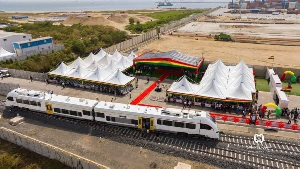President John Dramani Mahama has said he intends revamping factories built by Ghana’s first President Kwame Nkrumah which are now tottering or totally dormant.
According to him, some of those factories have so much potential and could serve as a booster to the economy in this modern era. For him, it would be worthwhile to scrutinise some of those firms and get them up and running.
“We are going to do a feasibility study on all the Kwame Nkrumah-era factories and those that are viable we will partner with the private sector to bring them back on stream,” he said during a presentation of the highlights of the 2016 manifesto of the National Democratic Congress (NDC) at the Banquet Hall of State House in Accra on Tuesday September 13.
He indicated that one of such factories is the Aboso Glass Factory, which is already undergoing revival due to the high demand for glass in the country. He indicated that reviving the factory would help cut down on glass imports.
Getting the factory in operation will also help provide employment, which is one key area he intends to focus on if he is retained in office in the December 7 polls, Mr Mahama explained.
For him, provision of a thriving environment is key for the development of the economy. He said government intended to embark on many more public-private partnerships (PPPs) to expand the economy to create more jobs.
Meanwhile, Minister of Communications Dr Edward Omane Boamah has said that government will not rely on borrowing to fund all the 130 promises highlighted by President Mahama.
Responding to a projection by policy think tank IMANI that the next NDC administration would need to borrow US$22 billion in order to be able to implement 75 per cent of the party’s 2016 manifesto promises, Dr Boamah told Prince Minkah on Class91.3FM’s Executive Breakfast Show on Wednesday, 14 September, that public-private partnerships were “key ingredients” in attaining “these promises”.
“… And so, to conceptualise the delivery of all these projects within the framework of government alone funding it is erroneous,” Dr Omane Boamah emphasised.
General News of Wednesday, 14 September 2016
Source: classfmonline.com
We’ll revive Nkrumah factories - Mahama
Entertainment
















